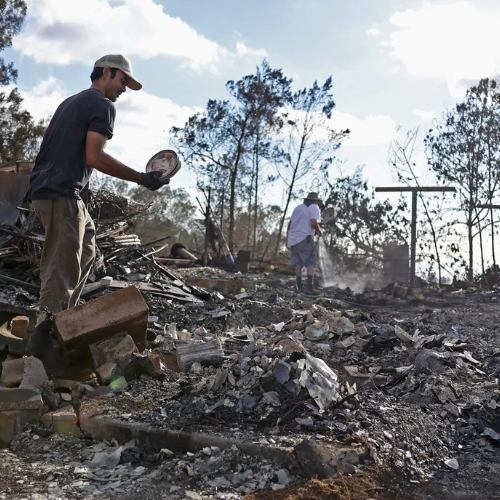Moving forward
Fortunately, there are innovative solutions waiting to be harnessed at two levels.
At the systemic level, we require transformations in economic systems, governance mechanisms, and societal structures.
Primarily, it is almost universally recognized (if not publicly admitted) that economic systems need to move away from the “growth at all costs” mantra and the fallacy of growth via unlimited consumption, which sit at the heart of most of our social and environmental ills.
A shift away from our outdated economic norms requires governance systems that are more inclusive, accountable, and effective in making bold, necessary decisions without being swayed by vested interests and populism. Importantly, these shifts in governance will need to be tailored to different cultures, political systems, and national contexts.
Even with the right economic and governance transformations, the social contract in societies around the world needs to evolve to keep up with humanity’s new realities in a way that leaves as few people behind as possible.
We also need smaller-scale, localized actions that contribute to “insured resilience”–our ability to anticipate, mitigate, and recover from existential threats.
Insured Resilience initiatives include everything from improving food security systems to implementing renewable energy solutions, developing effective water supply and sanitation systems, and creating products and services for a circular economy. Ultimately, achieving Insured Resilience comprises three key elements: public policy transformation, business model innovation, and social organization.
First, effective public policy will better balance the long-term needs of society with respecting individual rights and freedoms.
Second, new business models are needed to respond to the free ride on external costs. Accounting for CO2 production, as is starting to happen, is just the tip of the iceberg of this unanswered question of economic activity.
Third, social organization at the community, national, and international levels will see respect for collective welfare increasingly informing the social contract.
All these initiatives feed into redesigning society because global economic, governance, and societal systems are all comprised of smaller building blocks: individuals and organizations. Incremental changes will eventually lead to a tipping point for the whole system, creating the transformation we need.
The redesigning society framework cuts through the noise and goes right to the heart of how our economic, governance, and societal systems operate on a day-to-day basis.
Contrary to the unsustainable economic models exported around the world over the last century, redesigning society is not a one-size-fits-all approach. Governments, companies, communities, and institutions must all find their own trajectories of change to challenge the status quo and be bold in their efforts to chart a new course.
ESG has a place, but it has glaring blind spots. Now it’s time to be intellectually honest and move beyond thinking of the world and its people as revolving around financial markets and feel-good slogans–and begin the quest for solutions by radically redesigning society to confront real and life-threatening challenges ahead.

























